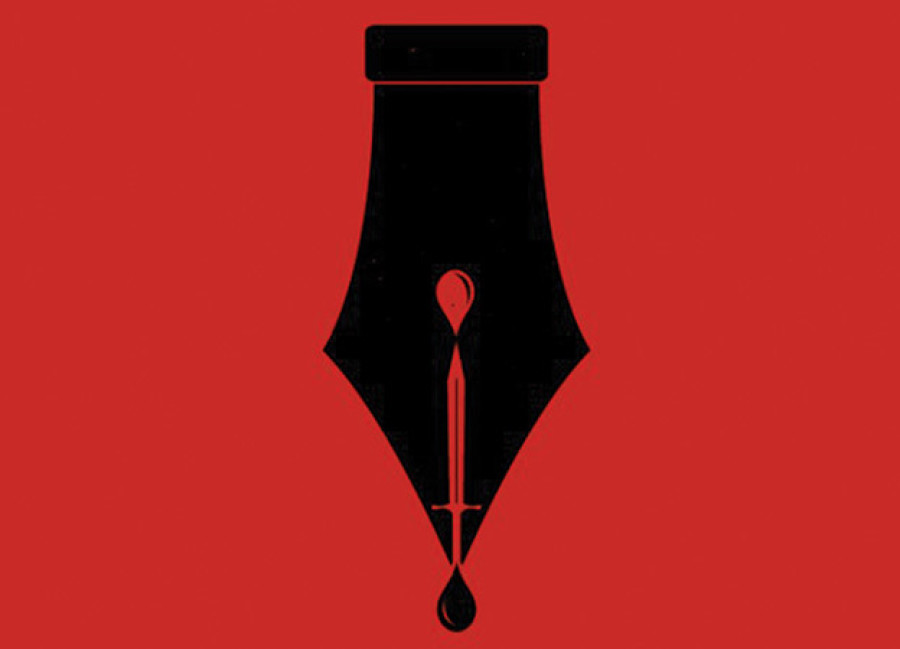Opinion
The press and the people
In February, the New York Times published an article on how the ‘Trump Gag Rule threatens women’s lives in Nepal’. I came across the article when it was shared by the writer, Subina Shrestha, on her Twitter account. The article was also shared by some other well-known journalists.
Prashant Sharma
In February, the New York Times published an article on how the ‘Trump Gag Rule threatens women’s lives in Nepal’. I came across the article when it was shared by the writer, Subina Shrestha, on her Twitter account. The article was also shared by some other well-known journalists.
Shrestha re-tweeted some of the tweets she received in response to her writing. But she re-tweeted the responses that praised her article, or those that did not offer criticism. In the comments people have made, almost no one disagrees that women’s health is important and that women should have access to contraceptives and safe abortion. Some do, however, believe that blaming a foreign government whose 2015 grant ‘helped the Family Planning Association of Nepal train more than 80 health workers in three districts’ is unnecessary. To put things into perspective, Nepal has 75 districts and is home to almost 30 million people.
Pushing certain views
Some twitter commenters believe that instead of spreading Trumphobia and focusing on how Trump might reverse the gains Nepal has made on reproductive health, Shrestha’s focus should have been on Nepal’s self-reliance and development of its own infrastructure and mechanisms. This would make sure that we continue to provide and improve health services available to women in our country. @WatchNepal wrote, ‘the point here is to question our government, not to plead with other governments for support.’ @npSubhas wrote, ‘Dear New York Times, we know you’re for anti-Trump articles, but please don’t promote this dependency syndrome.’
My point is not to criticise Shrestha; I admire her contribution to society through her journalism. The main point is that journalism has become just another special interest group. Many international journalists have focused on promoting mainstream liberal views globally, even if it is not the most logical or rational thing to say about a particular incident. For instance, in the article I referred to, the most logical approach would be to encourage the Nepali government to make sure women continue to receive reproductive health services, even if the Trump administration stops providing funds. Journalists have begun to twist any incidents, local or global, to push for mainstream liberal leftist views. I am not saying that journalists are lying to prove their points; it is true that the Family Planning Commission (FPC) of Nepal has received a grant from USAID, and if the funding is discontinued, the FPC will need funds from an alternative source to continue its work. But perhaps their focus is misplaced.
Platform for opinions
There is no doubt that some of Trump’s policies are unfair, unjust and irrational. For instance, imposing a travel ban on certain countries should be condemned by all and is not justifiable. His plan to construct a wall on the US-Mexico border is beyond absurd. However, just because some of his plans are as irrational does not mean that journalists should use every single incident to fuel a negative impression of Trump.
I do not believe that it is possible to be absolutely objective; however, journalists should try to refrain from twisting an incident such that it supports their ‘special interests’.
Whenever a journalist publishes an article, other journalists seem to feel the need to promote it and say something good about it, or if they disagree, they simply refrain from commenting. However, when a common reader puts forth a critical comment, the writer or other fellow journalists tend to avoid an ensuing discussion, regardless of how logical the counterargument is. I’m certain Shrestha and the other journalists who tweeted her article saw the comments other people made. These people deserve a response and their logical arguments must be brought into the discussion. Journalism should provide a platform for common people to voice their opinions, even if these views are critical.
By twisting incidents to validate mainstream liberal-leftist views, and by neglecting ordinary people’s genuine criticism of their work, journalists have created a trust vacuum between the press and the ordinary people. The fact that Shrestha or other journalists who shared her article did not respond to the critical comments they received could have certain implications. If they read a similar report on how the US government policy affected societies in Palestine or Chile, they may think twice before believing what the journalist is saying.
I have a deep respect for journalists who work hard to provide information to ordinary people like myself, but I believe they can do better.
Sharma studies liberal arts and sciences at New York University




 9.6°C Kathmandu
9.6°C Kathmandu










